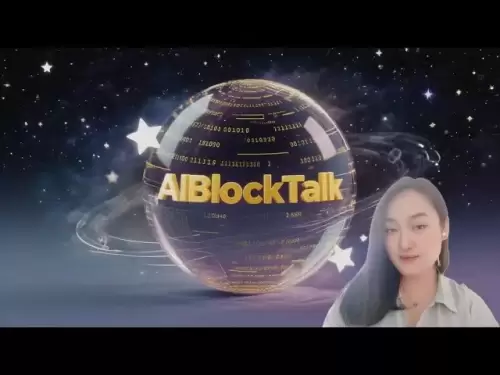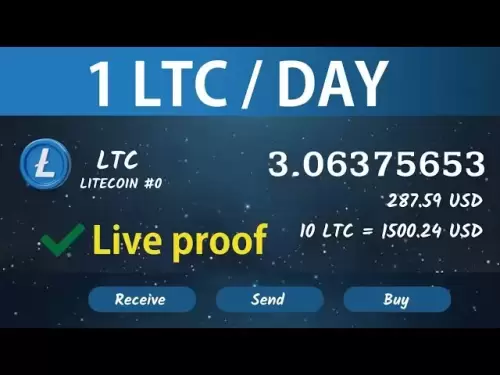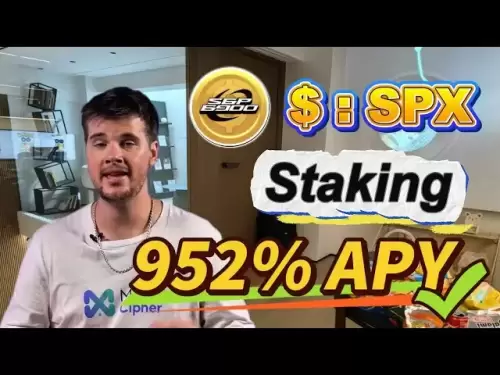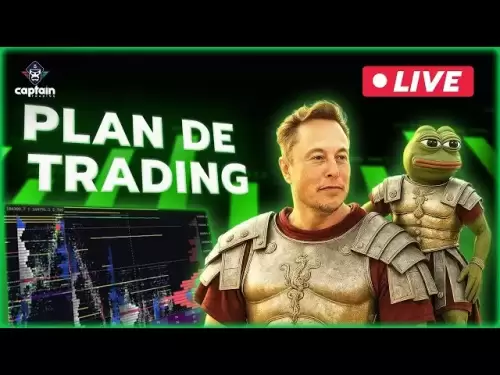-
 Bitcoin
Bitcoin $118800
-0.22% -
 Ethereum
Ethereum $3677
-4.47% -
 XRP
XRP $3.504
-3.02% -
 Tether USDt
Tether USDt $1.000
-0.01% -
 Solana
Solana $200.2
2.87% -
 BNB
BNB $762.2
-2.24% -
 USDC
USDC $0.9998
-0.02% -
 Dogecoin
Dogecoin $0.2644
-5.03% -
 Cardano
Cardano $0.8700
-5.51% -
 TRON
TRON $0.3128
-1.32% -
 Hyperliquid
Hyperliquid $43.99
-7.14% -
 Stellar
Stellar $0.4609
-5.85% -
 Sui
Sui $3.895
-3.54% -
 Chainlink
Chainlink $19.14
-5.01% -
 Hedera
Hedera $0.2680
-6.05% -
 Avalanche
Avalanche $24.99
-4.45% -
 Bitcoin Cash
Bitcoin Cash $518.6
-2.87% -
 Shiba Inu
Shiba Inu $0.00001507
-5.13% -
 Litecoin
Litecoin $115.0
-3.02% -
 Toncoin
Toncoin $3.444
2.27% -
 UNUS SED LEO
UNUS SED LEO $8.991
0.02% -
 Polkadot
Polkadot $4.400
-5.50% -
 Uniswap
Uniswap $10.43
-8.70% -
 Ethena USDe
Ethena USDe $1.001
0.01% -
 Monero
Monero $325.9
0.39% -
 Pepe
Pepe $0.00001372
-4.14% -
 Bitget Token
Bitget Token $4.811
-3.32% -
 Dai
Dai $1.000
0.00% -
 Aave
Aave $306.7
-8.06% -
 Bittensor
Bittensor $434.2
0.25%
How to invest in NFTs for beginners?
NFTs are unique digital assets stored on blockchain, representing ownership of items like art or music, and require a wallet and crypto for transactions.
Jul 09, 2025 at 10:35 am
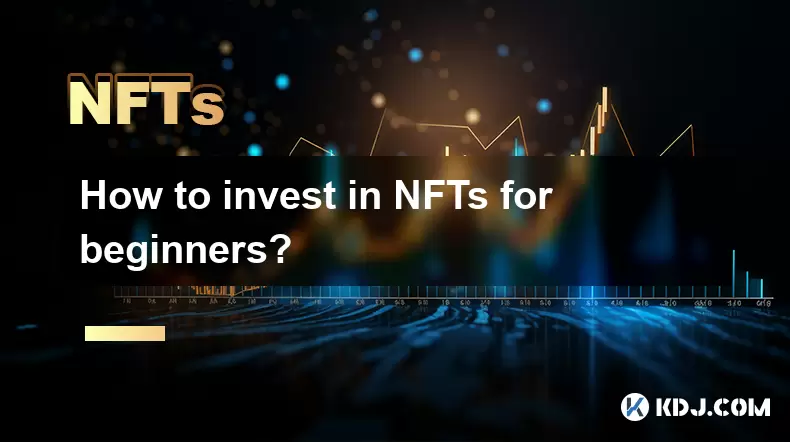
Understanding What NFTs Are
Non-Fungible Tokens (NFTs) are unique digital assets that represent ownership of a specific item or piece of content, often stored on a blockchain. Unlike cryptocurrencies such as Bitcoin or Ethereum, which are fungible and can be exchanged one-to-one, each NFT is distinct and cannot be replaced with another token. This uniqueness makes them ideal for representing digital art, collectibles, virtual real estate, music, and even tweets.
Before diving into investing in NFTs, it’s crucial to understand the blockchain technology behind them, particularly how Ethereum-based tokens operate using standards like ERC-721 and ERC-1155. These standards define how each NFT behaves and how they can be transferred between users. A basic understanding of wallets, gas fees, and smart contracts will help you navigate the ecosystem more effectively.
Selecting the Right Wallet and Blockchain Platform
To start investing in NFTs, you’ll need a digital wallet that supports the blockchain network where your desired NFTs reside. The most popular option is MetaMask, a browser extension wallet compatible with Ethereum and many other blockchains. Other alternatives include Trust Wallet and Coinbase Wallet, both offering mobile and desktop versions.
Once you’ve chosen a wallet, you’ll need to connect it to an NFT marketplace. Platforms like OpenSea, Rarible, LooksRare, and Foundation are widely used and support various types of NFTs. Each platform has its own user interface, listing process, and community dynamics. It’s important to explore multiple platforms before deciding where to invest.
Make sure your wallet is funded with native cryptocurrency—for example, ETH if you’re using Ethereum-based marketplaces. You’ll use this to pay for NFT purchases and gas fees, which are transaction costs paid to miners for processing transactions on the blockchain.
Researching and Evaluating NFT Projects
Not all NFTs are created equal. Some projects gain significant traction due to strong communities, utility, or artistic value, while others may fade quickly. Before making any investment, conduct thorough research on the project’s team, roadmap, whitepaper, and social media presence.
Look at the floor price of a collection—the lowest-priced NFT in that set—as a benchmark for entry-level investment. However, don’t base your decision solely on price. Examine the rarity of individual pieces within the collection, as some may have unique traits that increase their long-term value.
Engage with the community around the NFT project by joining Discord servers, Twitter accounts, and Telegram groups. Active and transparent communication from developers is a positive sign. Be wary of anonymous teams or sudden hype without substance.
Making Your First Purchase
After choosing a marketplace and connecting your wallet, browse through available collections or search for specific NFTs. Use filters to sort by price, rarity, and sale type (e.g., fixed price or auction). When you find an NFT you’re interested in:
- Click on the item to view details such as ownership history, attributes, and previous sales
- Ensure you're buying from the verified account of the creator or collection
- Check the total supply and number of owners to gauge scarcity
- Review the royalty fee, which is a percentage paid to the original creator upon resale
If everything looks good, proceed to purchase. Confirm the transaction in your wallet, keeping in mind that gas fees may fluctuate depending on network congestion. After the transaction is confirmed, the NFT will appear in your wallet under the “Collectibles” tab.
Storing and Managing Your NFTs
Once you own an NFT, it’s essential to store it securely. Most wallets allow you to view your NFTs directly within the application. Never share your private keys or recovery phrases with anyone, and avoid storing large amounts of crypto or NFTs in hot wallets connected to exchanges.
You can choose to hold your NFTs as a long-term investment, sell them on secondary markets, or rent them out if the platform supports such functionality. Some NFTs also grant access to exclusive events, memberships, or rewards—make sure to check what utility your NFT offers beyond mere ownership.
If you decide to sell, list your NFT on a marketplace by setting a fixed price or initiating an auction. Be mindful of listing fees and service charges, which vary across platforms. Always double-check the terms before finalizing any transaction.
Frequently Asked Questions
What happens if I lose my wallet?
If you lose access to your wallet or forget your recovery phrase, you will permanently lose access to your NFTs. There is no central authority to recover lost assets on the blockchain, so always keep your recovery phrase secure and offline.
Can I invest in NFTs without owning cryptocurrency?
No, you must own the native cryptocurrency of the blockchain on which the NFT operates. For example, you’ll need ETH to buy Ethereum-based NFTs. You can purchase crypto via exchanges like Binance, Coinbase, or Kraken and transfer it to your wallet.
Are NFTs environmentally harmful?
Some NFTs, especially those on older blockchains like Ethereum, consume significant energy due to proof-of-work consensus mechanisms. However, Ethereum transitioned to proof-of-stake in 2022, reducing its energy consumption by over 99%. Many newer blockchains like Tezos and Polygon offer eco-friendly alternatives.
How do I know if an NFT is authentic?
Authenticity is verified through the blockchain. Each NFT has a unique identifier and ownership record visible on the blockchain explorer. Always ensure you’re purchasing from the official creator or verified account on trusted marketplaces.
Disclaimer:info@kdj.com
The information provided is not trading advice. kdj.com does not assume any responsibility for any investments made based on the information provided in this article. Cryptocurrencies are highly volatile and it is highly recommended that you invest with caution after thorough research!
If you believe that the content used on this website infringes your copyright, please contact us immediately (info@kdj.com) and we will delete it promptly.
- XRP, Bitcoin, Ripplecoin: Navigating the Crypto Landscape in 2025
- 2025-07-22 20:30:13
- Cardano Ecosystem Watch: Can PayFi Token Remittix Trigger an ADA Overtake?
- 2025-07-22 20:50:13
- JasmyCoin Price Forecast: Chart Analysis Points to Potential Surge
- 2025-07-22 20:55:13
- Trump, Bitcoin, and Altcoins: A New York Minute on Crypto's Political Play
- 2025-07-22 21:00:13
- Shiba Inu, XRP, and Little Pepe: Navigating the Meme Coin Mania in NYC
- 2025-07-22 21:30:13
- Bitcoin's Role in IntelBroker's Takedown: A New Era of Crypto Crime Enforcement
- 2025-07-22 21:10:15
Related knowledge
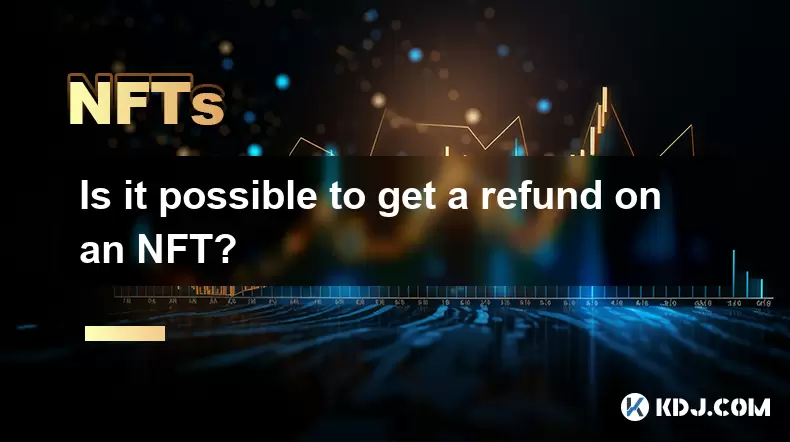
Is it possible to get a refund on an NFT?
Jul 21,2025 at 08:35pm
Understanding NFT Transactions and RefundsWhen you purchase an NFT (Non-Fungible Token), the transaction is typically recorded on a blockchain, making...
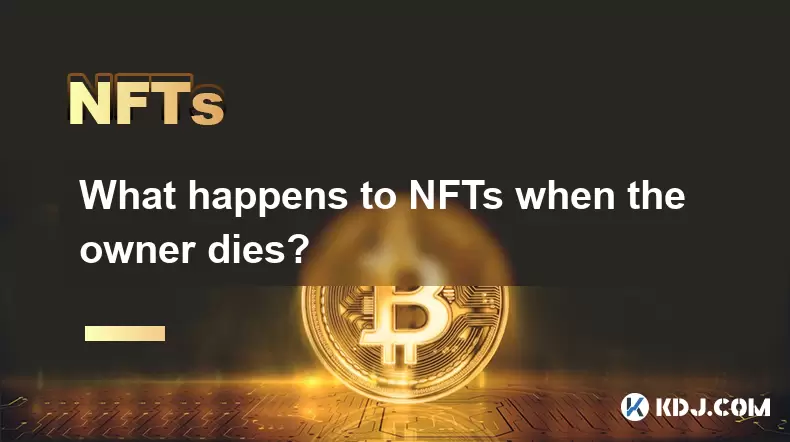
What happens to NFTs when the owner dies?
Jul 22,2025 at 02:43pm
Legal Ownership and Digital AssetsWhen an individual owns NFTs, the question of what happens to these assets upon their death is a pressing one. NFTs ...
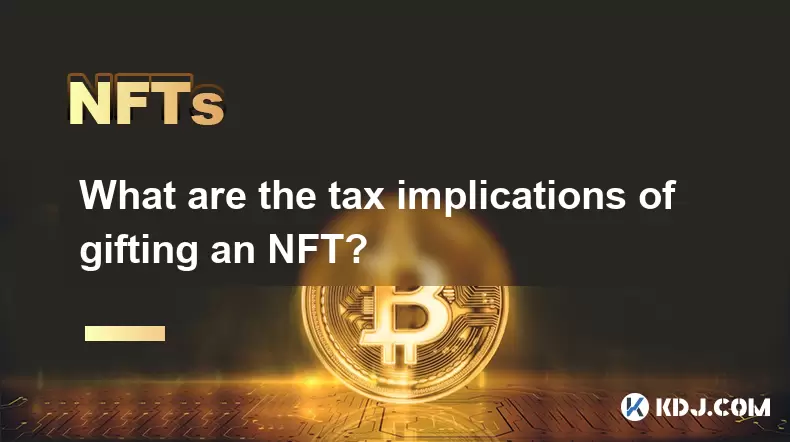
What are the tax implications of gifting an NFT?
Jul 19,2025 at 04:21am
Understanding the Basics of NFT GiftingGifting a Non-Fungible Token (NFT) involves transferring ownership from one individual to another without recei...
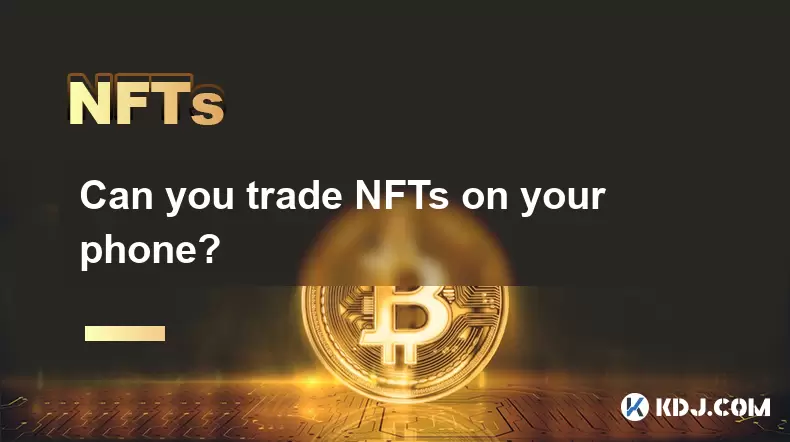
Can you trade NFTs on your phone?
Jul 18,2025 at 04:29am
Trading NFTs on Mobile DevicesYes, you can trade NFTs on your phone, and the process has become increasingly streamlined thanks to a variety of mobile...
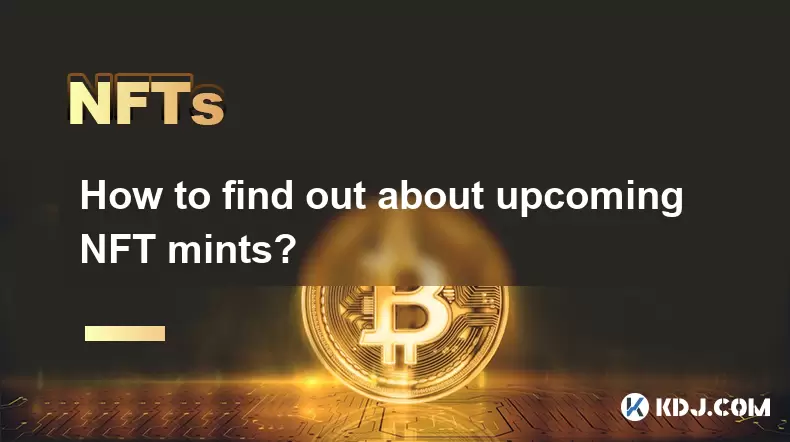
How to find out about upcoming NFT mints?
Jul 18,2025 at 11:50am
Exploring NFT Minting OpportunitiesUnderstanding the landscape of upcoming NFT mints is crucial for collectors, investors, and creators who wish to st...
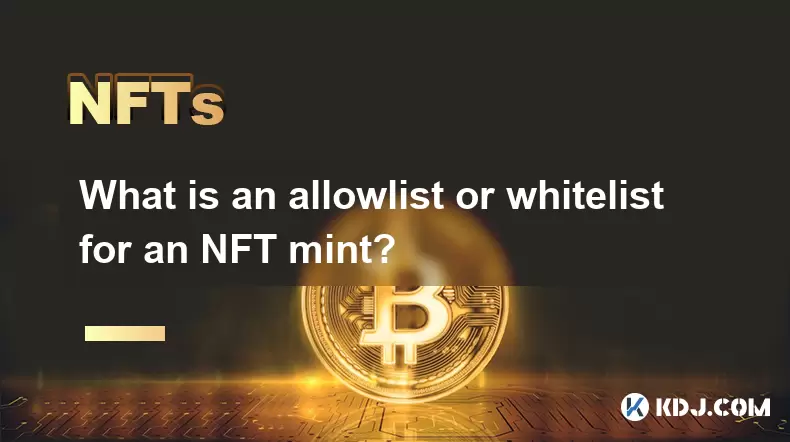
What is an allowlist or whitelist for an NFT mint?
Jul 20,2025 at 07:14pm
Understanding the Concept of an Allowlist for NFT MintingAn allowlist, also commonly referred to as a whitelist, is a mechanism used in the NFT mintin...

Is it possible to get a refund on an NFT?
Jul 21,2025 at 08:35pm
Understanding NFT Transactions and RefundsWhen you purchase an NFT (Non-Fungible Token), the transaction is typically recorded on a blockchain, making...

What happens to NFTs when the owner dies?
Jul 22,2025 at 02:43pm
Legal Ownership and Digital AssetsWhen an individual owns NFTs, the question of what happens to these assets upon their death is a pressing one. NFTs ...

What are the tax implications of gifting an NFT?
Jul 19,2025 at 04:21am
Understanding the Basics of NFT GiftingGifting a Non-Fungible Token (NFT) involves transferring ownership from one individual to another without recei...

Can you trade NFTs on your phone?
Jul 18,2025 at 04:29am
Trading NFTs on Mobile DevicesYes, you can trade NFTs on your phone, and the process has become increasingly streamlined thanks to a variety of mobile...

How to find out about upcoming NFT mints?
Jul 18,2025 at 11:50am
Exploring NFT Minting OpportunitiesUnderstanding the landscape of upcoming NFT mints is crucial for collectors, investors, and creators who wish to st...

What is an allowlist or whitelist for an NFT mint?
Jul 20,2025 at 07:14pm
Understanding the Concept of an Allowlist for NFT MintingAn allowlist, also commonly referred to as a whitelist, is a mechanism used in the NFT mintin...
See all articles





















